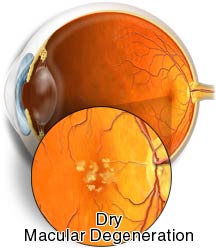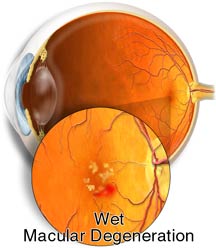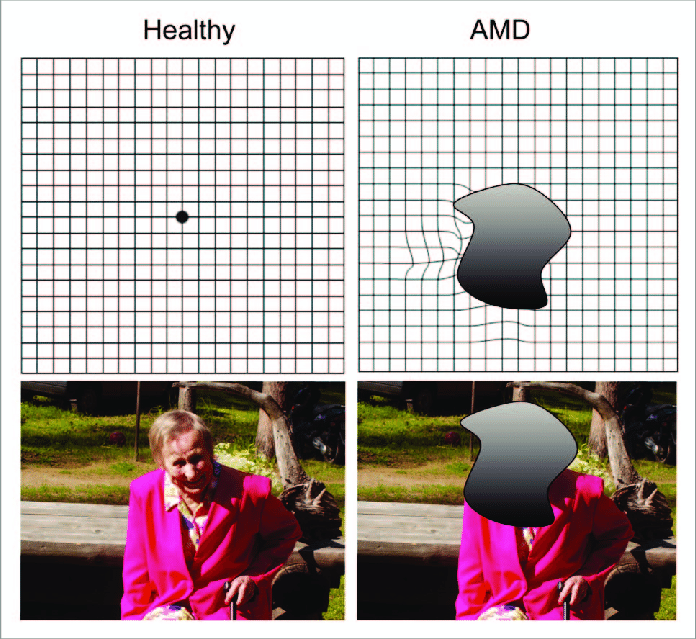Age-related Macular Degeneration: What you need to know
What is AMD?

Normal Retina
The macula is the central part of the retina that is responsible for providing a clear central vision. The degeneration of the macula in the elderly is known as Age-related Macular Degeneration (AMD). This causes irreversible damage to central vision. A healthy macula is needed for visual tasks such as driving and reading.

DRY AMD
Dry AMD is the most common type (90% of diagnosed AMD cases). It occurs due to an accumulation of waste materials from cells in the retina. Progression is usually gradual, and vision is usually less affected than in Wet AMD. Dry AMD may progress into the wet form.

WET AMD
| Risk Factors | Symtoms |
|---|---|
|
|

Central Vision Loss in AMD
Is there any treatment?
Presently, there is no effective treatment for dry AMD. The best way to protect your eyes is to lead a healthy lifestyle by refraining from smoking, having a healthy diet, monitoring general health, and protecting your eyes from UV light. Early diagnosis and treatment will ensure better prognosis, hence early detection is important. You should have your eyes checked by an optometrist or ophthalmologist regularly, and especially so if you have not done so before.
Amsler Chart
For patients with wet AMD, current treatment consists of injection of drugs into the eye that either aim to destroy existing abnormal blood vessels (Photodynamic therapy) or stop more abnormal blood vessel growth (Anti-VEGF). These treatments may be used synergistically as well.
Low vision aids can be an option for patients with central vision loss.
Photo Credits
Cover photo merlion photo: Jerome Lee
AMD photo: Walter Pok